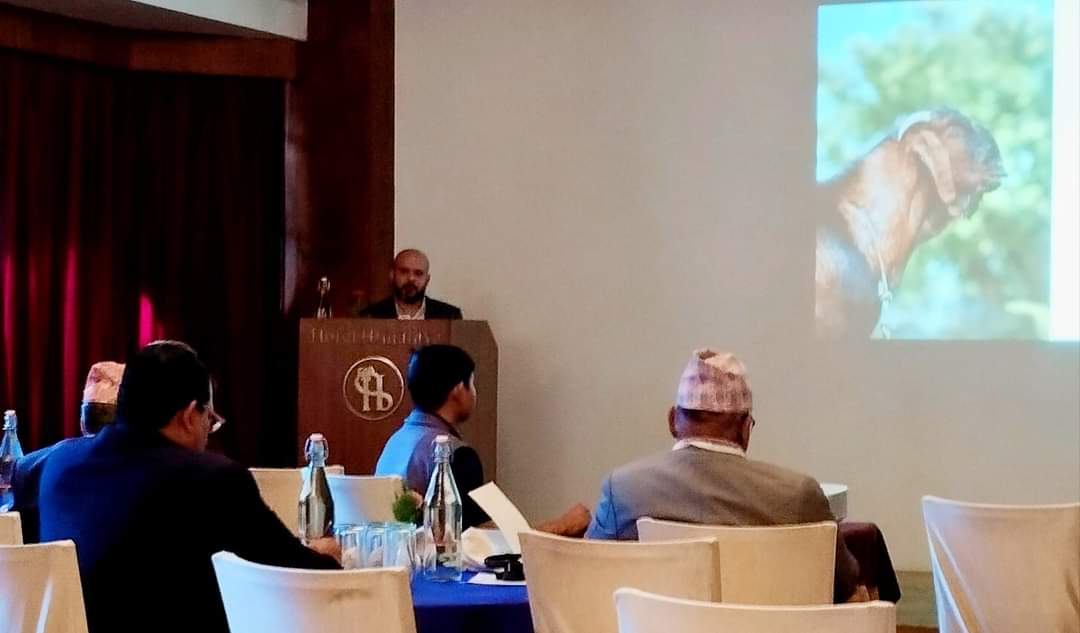Lalitpur, October 29, 2024 – The Green Resilient Agricultural Productive Ecosystem (GRAPE) project held an outcome-sharing workshop at Hotel Himalaya in Kupundol, Lalitpur. Co-funded by the European Union and the government of Finland, and implemented by GIZ in collaboration with Heifer Project Nepal, the workshop brought together stakeholders to discuss project outcomes, field experiences, and future strategies for sustainable agriculture in Nepal.
The event began with welcoming remarks from Axel Binder, Program Manager at GRAPE/GIZ, who provided an overview of the project’s mission to promote resilient and productive agricultural ecosystems. Following his address, Rupesh Kafle, Program Manager at Heifer, presented the project’s "Field of Action-3" outcomes, highlighting significant achievements and the positive impact on local farming communities.

A session titled "Voice from the Field" featured experiences shared by farmers from Danghadi and Bheriganga, providing a grassroots perspective on GRAPE’s interventions. The farmers spoke about increased productivity and sustainable farming practices, demonstrating the practical benefits of the project in rural Nepal.
The event included key remarks from notable figures, such as Durga Datta Ojha, Chairperson of Jorayal Rural Municipality, and Bharat Rijal, Mayor of Dullu Municipality, both emphasizing the importance of continued support for agricultural resilience initiatives. The workshop also featured keynote speeches from Dr. Umesh Dahal, Director General of the Department of Livestock Services, and Dr. Rajendra Prasad Mishra, Secretary at the Ministry of Agriculture and Livestock Development (MOALD), who commended the project for its valuable contributions to sustainable agriculture.
The workshop concluded with closing remarks from Dr. Tirtha Regmi, Country Director of Heifer, who expressed gratitude to all partners and encouraged further collaboration to build resilient agricultural systems across Nepal. The event provided a platform for knowledge-sharing and underscored the importance of sustainable agriculture for Nepal’s future.